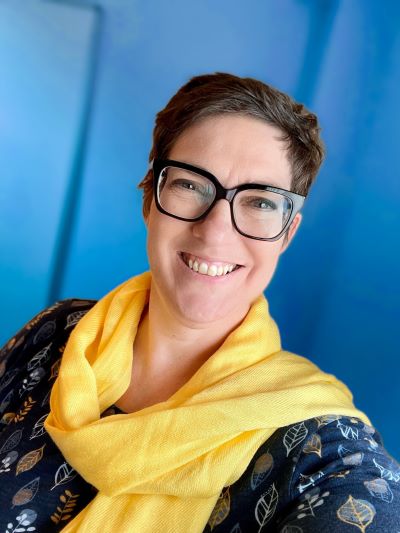LTA Connect: Compassionate Pedagogies - The three C’s of inclusive practice: compassion, creativity, and cultural-sensitivity
In this LTA Connect Dr Alison Purvis, Associate Dean Teaching and Learning at Sheffield Hallam University will present a session on the three C's of inclusive practice.
[ When
to
o Where
Remote Access only
Teams
8 Remote access
Not available
£ Cost
Free
É Contact
email: events.lta@uhi.ac.uk
à Add to Calendar
q Share
Session Outline
Compassionate, positive, and caring interactions in learning and teaching are a foundational element of teaching and learning to be able to create psychological safety, encourage engagement, and develop a sense of belonging for everyone (Burke & Lemar, 2021). Thoughtful staff-student interactions allow students to develop the skills and confidence to make them successful in life. Where there is compassion, ‘mistakes’ can be made as necessary for learning and without fear of judgement (Brown, 2016). Culturally responsive teaching (CRT) is a key example of compassionate practice, where tutors actively adopt inclusive practices and recognise the diverse backgrounds of students (Sanger, 2020). When student diversity is understood and valued, the learning environment becomes richer for everyone. Humanising teaching in online environments is even more important when minoritised students of colour are shown to be less likely to achieve compared to their white or Asian counterparts (Pacansky-Brock et al, 2020). Similarly, consideration of the diversity of lived experiences including disabilities and differences and being thoughtful with the perspective of cultural sensitivity and with a social model of understanding of difference is critical to avoid assumptions and ableism.
Giving space within the curriculum for creative pedagogies is the final piece in the inclusive practitioners’ core approach to learning and teaching. Creative pedagogies encourage a growth mindset and offer more opportunities for students to flourish without the constraints of traditional pedagogies and normative assumptions (Spaeth & Pearson, 2023). Such an approach offers all students, with or without disabilities and differences, greater opportunity for engagement in their learning. Creative pedagogies can provide a more inclusive and equitable basis for which students with differences and disabilities can connect with the learning experience more effectively.
Demonstrably person-centred approaches can help to mitigate the challenges some students experience in their learning journey. However, do we as practitioners have the skills and confidence to support students in a way that is more human and compassionate, and which requires more openness and vulnerability? How can we ensure that students feel cared for yet challenged to achieve their best? Asking academic colleagues to adopt compassionate pedagogy alone is unlikely to produce a transformational change in their interactions with students. Colleagues must be supported to do so, leaders must role-model the behaviours of care and compassion, and courageous leadership needs to be visible (Della-Latta & Burkett, 2021).
Compassionate and inclusive pedagogy does not exclude or diminish any individual and gives everyone the opportunity to learn, thrive and succeed. In this session we will explore the core components and enabling factors for student success through true inclusive practice.
Shortened References:
Brown, B. (2016). https://doi.org/10.1002/abc.21224
Burke, K. & Larmar, S. (2021). https://doi.org/10.1080/0309877X.2020.1804536
Della-Latta, J., & Burkett, K. (2021). https://www.researchgate.net/publication/358242866_Leadership_for_Flourishing_in_Educational_Contexts
Pacansky-Brock, M., Smedshammer, M., & Vincent-Layton, K. (2020). https://cie.asu.edu/ojs/index.php/cieatasu/article/view/1905
Sanger, C.S. (2020). https://doi.org/10.1007/978-981-15-1628-3_2
Spaeth, E. and Pearson, A. (2023). https://doi.org/10.56433/jpaap.v11i2.517
Waddington, Kathryn. (2017). https://doi.org/10.1007/978-3-319-57783-8_4
Presenter Bio
Dr Alison Purvis

Alison is an Associate Dean Teaching and Learning at Sheffield Hallam University and has over 25 years of experience in higher education. She is a teaching and learning specialist with research interests in higher education practice, digitally enhanced learning, inclusive practice, physiology of exercise, and public health. Alison is a senior editor at the Journal of University Teaching and Learning Practice and is one of the founding directors of the Open Access Publishing Association, a group of energised leaders carving out a pathway for open and transparent knowledge dissemination, challenging the dominant for-profit model of publishing internationally.
Learning and Teaching Enhancement Strategy Values



Advance HE Professional Standards Framework
To Book
Please email events.lta@uhi.ac.uk to book a place on this event.
Accessibility
We want to make this a positive experience for all participants and hope we have met everyone’s needs in joining this event. If you have particular access needs please contact us at lta@uhi.ac.uk so we can work together to get you as good an experience as we can.
Privacy
Please read our policy on how we treat any personal information collected in relation to our events:
Data Protection Statement for Events